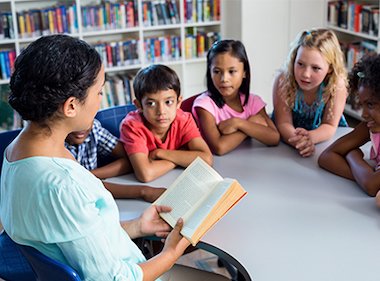The impact of Covid-19 on pupil attainment
As children settle back into their school routines, the affects of the Covid-19 school closures on learning and attainment are becoming clearer. Reports suggest that on average primary school children lost two months of learning during the first national lockdown. Now, one year on, what can be done to close the Covid learning gap?
Impact | Studies | Recovery

The impact of Covid-19 school closures
There is a growing evidence around the impact of school closures on children’s learning. Research shows:
- Primary-aged children have made less academic progress compared with previous year groups
- Achievement is lower in both reading and maths as a result of missed learning
- There is a large attainment gap for disadvantaged pupils, which seems to have grown
Studies
Studies looking at children in primary schools by the National Foundation for Education Research (NEFR) and the Department for Education (DfE) show a consistent impact of the first national lockdown with pupils making around 2 months less progress than similar pupils in previous years.
The study from the NFER also shows a large gap for disadvantaged pupils, which seems to have grown since the start of the pandemic.
While many studies show similar learning effects between reading and maths learning, some recent studies – including the DfE analysis show increased learning loss for maths.
Summary
| Study | What does it look at? | What is the impact on learning? | What is the impact on disadvantaged pupils? |
|---|---|---|---|
| NFER Interim Report | This interim report assesses how Year 2 pupils’ attainment in reading and maths were impacted during the first national Covid-19 lockdown. | Year 2 pupils were 2 months behind in English and maths in Autumn 2020 compared to pupils in previous years. | The disadvantage gap in both reading and maths (7 months) seems to have widened from previous estimates. |
| Department for Education Interim Report | The analysis is based on the results achieved by pupils in the first half of the 2020/21 autumn term in comparison to pupils in previous years. | All year groups have experienced a learning loss in reading. In primary schools these were typically between 1.7 and 2.0 months. | Schools with high levels of disadvantage have experienced higher levels of loss than other schools. |
Read the studies in full
National Foundation for Education Research Impact of school closures and subsequent support strategies on attainment and socio-emotional wellbeing in Key Stage 1: Interim Paper 1, Education Endowment Foundation. Read in full here.
Education Policy Institute, Renaissance Learning Understanding Progress in the 2020/21 Academic Year interim findings, Department for Education. Available here
Other evidence on the impact of Covid-19
- The Education Endowment Foundation conducted a rapid evidence assessment during the first national lockdown on the attainment gap. Read this in full here. A summary of their key findings is here.
- The Sutton Trust polled parents and teachers at different stages of the pandemic, they found disparities in access to devices and other barriers to learning for disadvantaged pupils. Read in full here.
- Institute of Fiscal Studies reviewed learning during the first national lockdown, read more here.
- The Big Lockdown Learning Parent Survey seeks to examine parental accounts of learning during the second national lockdown, information on the study and its findings can be found here.
- This UCL IOE study examined remote mathematics practice during Covid-19, and includes interesting findings on schools’ approaches to curriculum delivery during this period. It can be found here.
- The National Foundation for Education Research have a helpful summary on research conducted into schools’ responses to Covid-19, which can be found here.
Recovery
Assessing lost learning
The Covid-19 pandemic has affected pupils across every age and stage and the research suggests that there have been widespread learning losses.
Children from disadvantaged backgrounds – those who may have struggled with access to devices and connecting to internet – are more likely to have missed learning, widening the Covid gap.
At the same time, there will have been learning gains – some children will have thrived in response to a new routine and a different approach to learning.
Ultimately, it will be up to teachers to assess the impact of the school closures on the individual children in classes.

Assessment – A roadmap for recovery
Joy Allcock, M.Ed. February 2021
As we go into 2021, we all want to know what we can do to maximise our students’ learning opportunities. Does everyone need the same kind of instruction? What should we be doing to overcome any pre-existing achievement gaps? How do we find out where to start?
Assessments can inform our plans for recovery from the Covid-19 pandemic and help us decide on the best instructional strategies for our students. The right assessments can provide us with a roadmap for the journey—ensuring we know what to do and how to do it.
The need for accurate, formative assessment has never been greater.
Read more